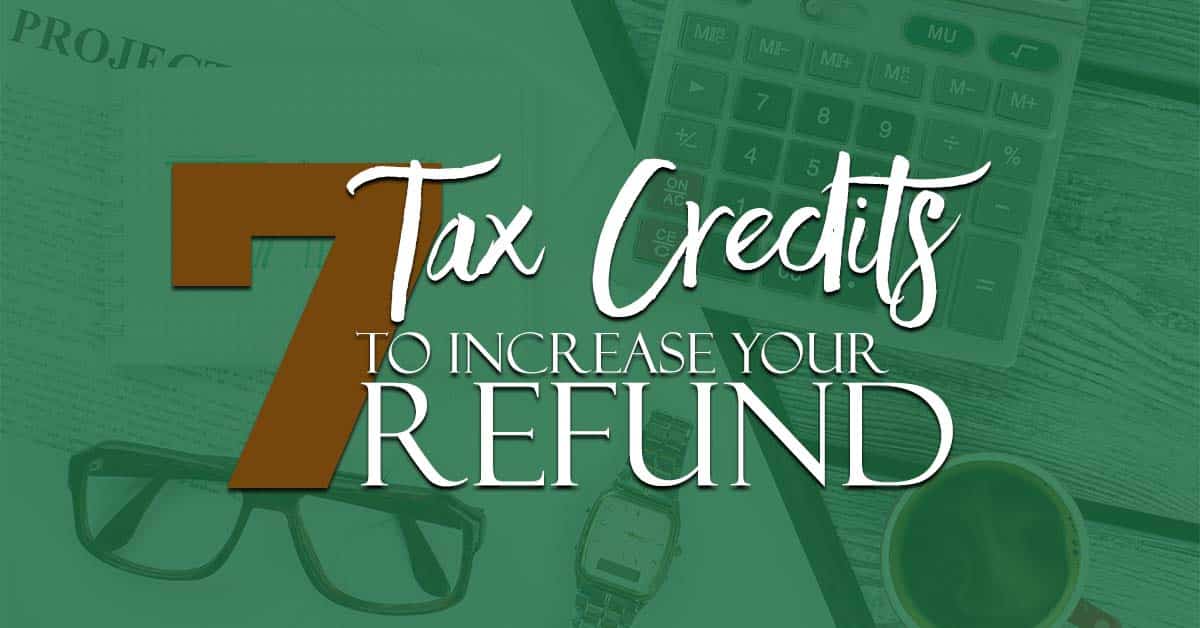Making the most of available tax credits can help you dramatically boost your tax return. A small business accountant can help you understand if you meet the qualifications to claim the following beneficial credits:
- Child tax credit
- Recovery rebate credit
- Earned income tax credit
- Child and dependent care credit
- Adoption credit
- Credit for the elderly and disabled
- Saver’s Credit
Furthermore, accounting services for small businesses can make sure you claim and file correctly. That way, you can enjoy your refund worry-free.
The individual tax year in the United States extends from January 1 through December 31. The deadline to file for the previous tax year usually falls in mid-April.
Here we’ll walk you through seven useful tax credits that can help you reduce your taxes and increase your return in the coming year. A person eligible for all of them would qualify for $42,726 in tax credits.
It’s important to know that there’s a difference between tax credits and tax deductions. Credits allow for a dollar-to-dollar reduction in the amount you owe in taxes. Deductions reduce the amount of your income is taxable.
These tax credits are incredibly useful both for individuals and small businesses owners. They can dramatically reduce the amount you owe in taxes and potentially increase your refund amount.
1. Child Tax Credit
In 2021, the US has an expanded child tax credit. Caregivers can claim a credit of $3,600 for every child under age six and $3,000 for every child under age 17.
Furthermore, anyone with dependents aged 18 to 24 enrolled in college full-time can claim a credit of $500 per student dependent.
For this credit, caregivers received monthly advance installments in July-December of 2021. However, some opted out and will instead receive the credit as a lump sum after filing their 2021 tax returns.
If you opted for the lump sum, you must file a 2021 tax return to receive the child tax credit for which you qualify.
2. Recovery Rebate Credit
Those who qualified for a third stimulus check or received less than they should have can claim up to $1400 with the recovery rebate credit.
However, to receive the credit individuals must file a 2021 tax return. Single households earning less than $75,000 qualified for the full $1400 stimulus check.
For heads of household, that number was $112,500, while couples filing jointly could earn up to $150,000.
It’s important to claim this credit if your qualified for the third stimulus check but did not receive it. Do not claim it if you have already received your stimulus payment earlier in the year.
3. Earned Income Credit
The EITC is designed to provide tax relief for low to moderate-income individuals and families. Previously, the maximum EITC was $543, but for 2021 only, that limit is $1,502. The annual income threshold for single filers was also raised from $16,000 to $21,000.
For married couples, the maximum annual income is $27,000.
EITC offsets any taxes owed. If it exceeds the amount owed, then you receive the remainder as a refund.
4. Child/Dependent Care Credit
The care credit is designed to help cover the cost of childcare. To qualify, you must pay someone else to look after your child so that you can work or find employment.
Previously, the credit lets caregivers claim expenses of up to $3000 per year for a single child and up to 6,000 for more children.
This year, however, caregivers can claim up to $8,000 for one child and $16,000 for two more. Additionally, they can claim 50% of qualifying expenses, which translates to $4000 per single child and $8000 for multiple.
To make the most of this credit, make sure to keep detailed records of your childcare expenses so that you can complete Form 2441 and attach it to your return.
5. Adoption Credit
Families that adopt children can receive a non-refundable tax credit of up to $14,440 per child for their 2021 childcare expenses.
Qualifying expenses include adoption fees, court costs, attorney’s fees, and travel expenses. This credit can only be used to offset owed taxes, not to gain a refund.
Families who adopt a child with special needs may qualify for the refund regardless of their qualifying expenses.
Additionally, the credit is reduced for taxpayers with modified adjusted gross income over $214,520.
6. Elderly/disabled Credit
This credit provides tax relief for taxpayers 65 and older, or those under 65 who are disabled.
To qualify as a disabled individual, you cannot be employable. In other words, you must be retired with “permanent and total disability.”
Furthermore, you need to have received taxable disability income during the year, and you must have an income from non-taxable social security, pensions, or disability under specific limits.
Depending on your filing status, that income limit is between $12,500 and $25,000 in adjusted gross income or between $3,750 and $7,000 in social security/pension payments.
7. Saver’s Credit
Also called the retirement savings contributions credit, this is given to low-income workers who save money into a retirement account.
To qualify, workers must save into an IRA, an employer-sponsored retirement plan, or an Achieving a Better Life Experience (ABLE) account.
Individuals must earn an annual income below $33,000 and can claim up to $1000. Couples filing jointly can earn up to $66,000 and claim up to $2,000.
While navigating these credits might seem confusing to navigate, finding the right small business bookkeeping services can help you get the most out of your tax refund.
If you’re searching for a small business accountant near me, we can help. We have years of experience with business bookkeeping and accounting services.
Moreover, we employ the best Houston accountants to help our clients with all their filing needs this tax season.
When you need a small business accountant near me, Tracy Jones CPA can help you maximize your small business’s financial health. That includes making the most of your 2021 tax return.
For more information, visit our website or give us a call at 832-698-7011 today.







